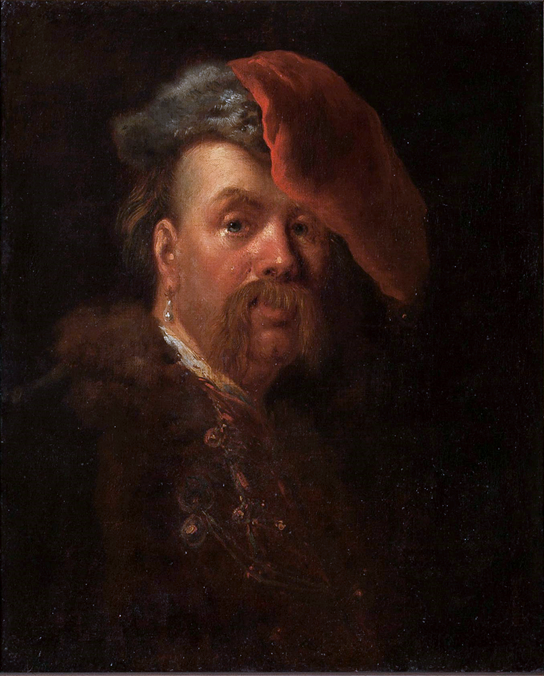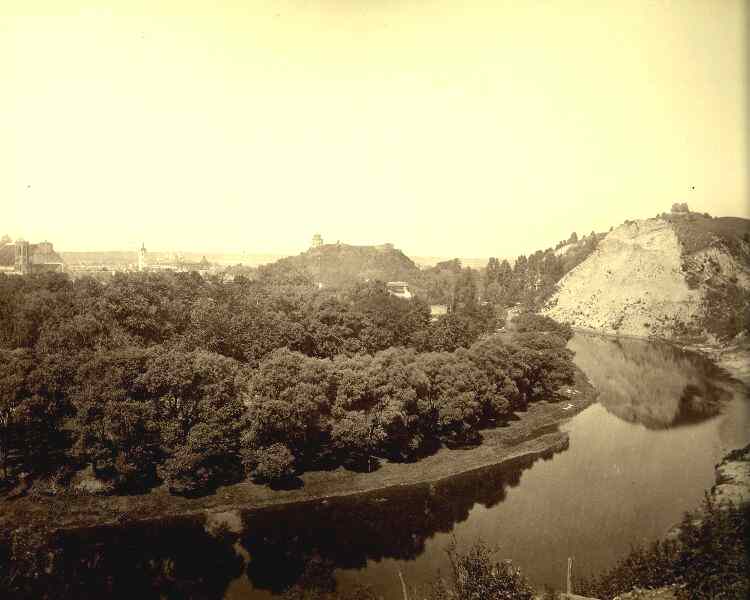Gáspár Bekes on:
[Wikipedia]
[Google]
[Amazon]
 Gáspár Bekes de Kornyát (also ''Gáspár de Corniath Bekes'', ''Kornyáti Bekes Gáspár'', or ''Kaspar Bekes'', ''Caspar Bekesh''; 1520 – 7 November 1579) was a Hungarian nobleman who fought
Gáspár Bekes de Kornyát (also ''Gáspár de Corniath Bekes'', ''Kornyáti Bekes Gáspár'', or ''Kaspar Bekes'', ''Caspar Bekesh''; 1520 – 7 November 1579) was a Hungarian nobleman who fought
 Bekes was treasurer for
Bekes was treasurer for
 In 1576, Báthory was elected and crowned a King of Poland and later became a
In 1576, Báthory was elected and crowned a King of Poland and later became a
 Gáspár Bekes de Kornyát (also ''Gáspár de Corniath Bekes'', ''Kornyáti Bekes Gáspár'', or ''Kaspar Bekes'', ''Caspar Bekesh''; 1520 – 7 November 1579) was a Hungarian nobleman who fought
Gáspár Bekes de Kornyát (also ''Gáspár de Corniath Bekes'', ''Kornyáti Bekes Gáspár'', or ''Kaspar Bekes'', ''Caspar Bekesh''; 1520 – 7 November 1579) was a Hungarian nobleman who fought Stephen Báthory
Stephen Báthory ( hu, Báthory István; pl, Stefan Batory; ; 27 September 1533 – 12 December 1586) was Voivode of Transylvania (1571–1576), Prince of Transylvania (1576–1586), King of Poland and Grand Duke of Lithuania (1576–1586) ...
for the throne of Transylvania
Transylvania ( ro, Ardeal or ; hu, Erdély; german: Siebenbürgen) is a historical and cultural region in Central Europe, encompassing central Romania. To the east and south its natural border is the Carpathian Mountains, and to the west the Ap ...
after the death of John II Sigismund Zápolya
John is a common English name and surname:
* John (given name)
* John (surname)
John may also refer to:
New Testament
Works
* Gospel of John, a title often shortened to John
* First Epistle of John, often shortened to 1 John
* Secon ...
in 1571. Allied with Maximilian II, Holy Roman Emperor
Maximilian II (31 July 1527 – 12 October 1576) was Holy Roman Emperor from 1564 until his death in 1576. A member of the Austrian House of Habsburg, he was crowned King of Bohemia in Prague on 14 May 1562 and elected King of Germany (Kin ...
, and the Székelys, Bekes organized two rebellions against Báthory, but was defeated. After Báthory became King of Poland and Grand Duke of Lithuania
The monarchy of Lithuania concerned the monarchical head of state of Kingdom of Lithuania, Lithuania, which was established as an Absolute monarchy, absolute and hereditary monarchy. Throughout Lithuania's history there were three Duke, ducal D ...
in 1576, Bekes reconciled with Báthory, becoming his close adviser. Bekes also fought in the Danzig rebellion
The rebellion of the city of Danzig ( Gdańsk) was a revolt from December 1575 to December 1577 of the city against the outcome of the 1576 Polish–Lithuanian royal election. The Polish throne was contested by Stephen Báthory and the Holy Roma ...
and the Livonian War
The Livonian War (1558–1583) was the Russian invasion of Old Livonia, and the prolonged series of military conflicts that followed, in which Tsar Ivan the Terrible of Russia (Muscovy) unsuccessfully fought for control of the region (pr ...
.
Rivalry with Báthory
John II Sigismund Zápolya
John is a common English name and surname:
* John (given name)
* John (surname)
John may also refer to:
New Testament
Works
* Gospel of John, a title often shortened to John
* First Epistle of John, often shortened to 1 John
* Secon ...
, King of Hungary
The King of Hungary ( hu, magyar király) was the ruling head of state of the Kingdom of Hungary from 1000 (or 1001) to 1918. The style of title "Apostolic King of Hungary" (''Apostoli Magyar Király'') was endorsed by Pope Clement XIII in 175 ...
(died 1571), and gained considerable power and favor with him. In his testament, Zápolya, who had no legal heir, designated Bekes as Voivode of Transylvania
The Voivode of Transylvania (german: Vojwode von Siebenbürgen;Fallenbüchl 1988, p. 77. hu, erdélyi vajda;Zsoldos 2011, p. 36. la, voivoda Transsylvaniae; ro, voievodul Transilvaniei) was the highest-ranking official in Transylvania wit ...
. However, the Hungarian nobles did not honor the will and elected Stephen Báthory
Stephen Báthory ( hu, Báthory István; pl, Stefan Batory; ; 27 September 1533 – 12 December 1586) was Voivode of Transylvania (1571–1576), Prince of Transylvania (1576–1586), King of Poland and Grand Duke of Lithuania (1576–1586) ...
as their voivode while Bekes was away on a diplomatic mission in the court of Maximilian II, Holy Roman Emperor
Maximilian II (31 July 1527 – 12 October 1576) was Holy Roman Emperor from 1564 until his death in 1576. A member of the Austrian House of Habsburg, he was crowned King of Bohemia in Prague on 14 May 1562 and elected King of Germany (Kin ...
. Supported by Maximilian, who opposed Báthory for the throne of the Polish–Lithuanian Commonwealth
The Polish–Lithuanian Commonwealth, formally known as the Kingdom of Poland and the Grand Duchy of Lithuania, and, after 1791, as the Commonwealth of Poland, was a bi- confederal state, sometimes called a federation, of Poland and Lithuania ru ...
, Bekes gathered his army and organized a rebellion against Báthory, but was defeated. Bekes lost all of his possessions and was forced to seek asylum with Maximilian in Vienna
en, Viennese
, iso_code = AT-9
, registration_plate = W
, postal_code_type = Postal code
, postal_code =
, timezone = CET
, utc_offset = +1
, timezone_DST ...
. When Poland–Lithuania elected Elected may refer to:
* "Elected" (song), by Alice Cooper, 1973
* ''Elected'' (EP), by Ayreon, 2008
*The Elected, an American indie rock band
See also
*Election
An election is a formal group decision-making process by which a population ...
Henry of Valois as its monarch, Maximilian and Báthory ceased hostilities. Bekes unsuccessfully traveled to the Ottoman Empire
The Ottoman Empire, * ; is an archaic version. The definite article forms and were synonymous * and el, Оθωμανική Αυτοκρατορία, Othōmanikē Avtokratoria, label=none * info page on book at Martin Luther University) ...
seeking allies. His hopes were revived again when in 1574 Henry of Valois abdicated the Polish throne for that of France and the Maximilian–Báthory rivalry resumed. Bekes, supported by Székelys, started another rebellion, but his forces were defeated in the Battle of Kerelőszentpál in 1575. Supporters of Bekes were brutally suppressed and privileges for the Székelys were suspended.
Service to Báthory and death
 In 1576, Báthory was elected and crowned a King of Poland and later became a
In 1576, Báthory was elected and crowned a King of Poland and later became a Grand Duke of Lithuania
The monarchy of Lithuania concerned the monarchical head of state of Kingdom of Lithuania, Lithuania, which was established as an Absolute monarchy, absolute and hereditary monarchy. Throughout Lithuania's history there were three Duke, ducal D ...
(the nobility in Lithuania were at first reluctant to Bathory and preferred Maximilian II, Holy Roman Emperor
Maximilian II (31 July 1527 – 12 October 1576) was Holy Roman Emperor from 1564 until his death in 1576. A member of the Austrian House of Habsburg, he was crowned King of Bohemia in Prague on 14 May 1562 and elected King of Germany (Kin ...
),"Stefan Batory", Jerzy Besala, Państwowy Instytut Wydawniczy (State Publishing Institute), Warszawa 1992, , p. 138-148. thus becoming the ruler of the Polish–Lithuanian Commonwealth
The Polish–Lithuanian Commonwealth, formally known as the Kingdom of Poland and the Grand Duchy of Lithuania, and, after 1791, as the Commonwealth of Poland, was a bi- confederal state, sometimes called a federation, of Poland and Lithuania ru ...
. Maximilian died in 1576, and Bekes lost any hopes of reclaiming Transylvania. Bekes decided to reconcile with Báthory and became his loyal ally and close adviser despite differences in their religions. During the Danzig rebellion
The rebellion of the city of Danzig ( Gdańsk) was a revolt from December 1575 to December 1577 of the city against the outcome of the 1576 Polish–Lithuanian royal election. The Polish throne was contested by Stephen Báthory and the Holy Roma ...
, Bekes commanded Hungarian troops, sent to assist Báthory in establishing his control over the Commonwealth, and gained special recognition for his defense of Elbląg (Ebling). During the Livonian War
The Livonian War (1558–1583) was the Russian invasion of Old Livonia, and the prolonged series of military conflicts that followed, in which Tsar Ivan the Terrible of Russia (Muscovy) unsuccessfully fought for control of the region (pr ...
against Ivan IV of Russia
Ivan IV Vasilyevich (russian: Ива́н Васи́льевич; 25 August 1530 – ), commonly known in English as Ivan the Terrible, was the grand prince of Moscow from 1533 to 1547 and the first Tsar of all Russia from 1547 to 1584.
Iva ...
, Bekes joined the expedition to reconquer Polatsk (1579). For his service Báthory assigned him Lanckorona
Lanckorona is a village located south-west of Kraków in Lesser Poland. It lies on the Skawinka river, among the hills of the Beskids, above sea level. It is known for the Lanckorona Castle, today in ruins. Lanckorona is also known for the Batt ...
and other lands. On his way to Hrodna
Grodno (russian: Гродно, pl, Grodno; lt, Gardinas) or Hrodna ( be, Гродна ), is a city in western Belarus. The city is located on the Neman River, 300 km (186 mi) from Minsk, about 15 km (9 mi) from the Polish b ...
Bekes caught cold, fell ill, and died later in Hrodna. His body was transported to Vilnius
Vilnius ( , ; see also other names) is the capital and largest city of Lithuania, with a population of 592,389 (according to the state register) or 625,107 (according to the municipality of Vilnius). The population of Vilnius's functional urb ...
for burial, but none of the city's Christian cemeteries agreed to accept him because of his Unitarian faith. Therefore, he was buried on a hill, which later became known as the Bekes Hill. His grave was marked by an octagonal tower, in height and in diameter. The hill and his grave were washed away by the Vilnia River in the mid-1800s. The territory is now within the Kalnai Park.
References
{{DEFAULTSORT:Bekes, Gaspar 1520 births 1579 deaths Hungarian nobility in Transylvania Hungarian Unitarians 16th-century Hungarian people Polish people of the Livonian campaign of Stephen Báthory Eastern Hungarian Kingdom